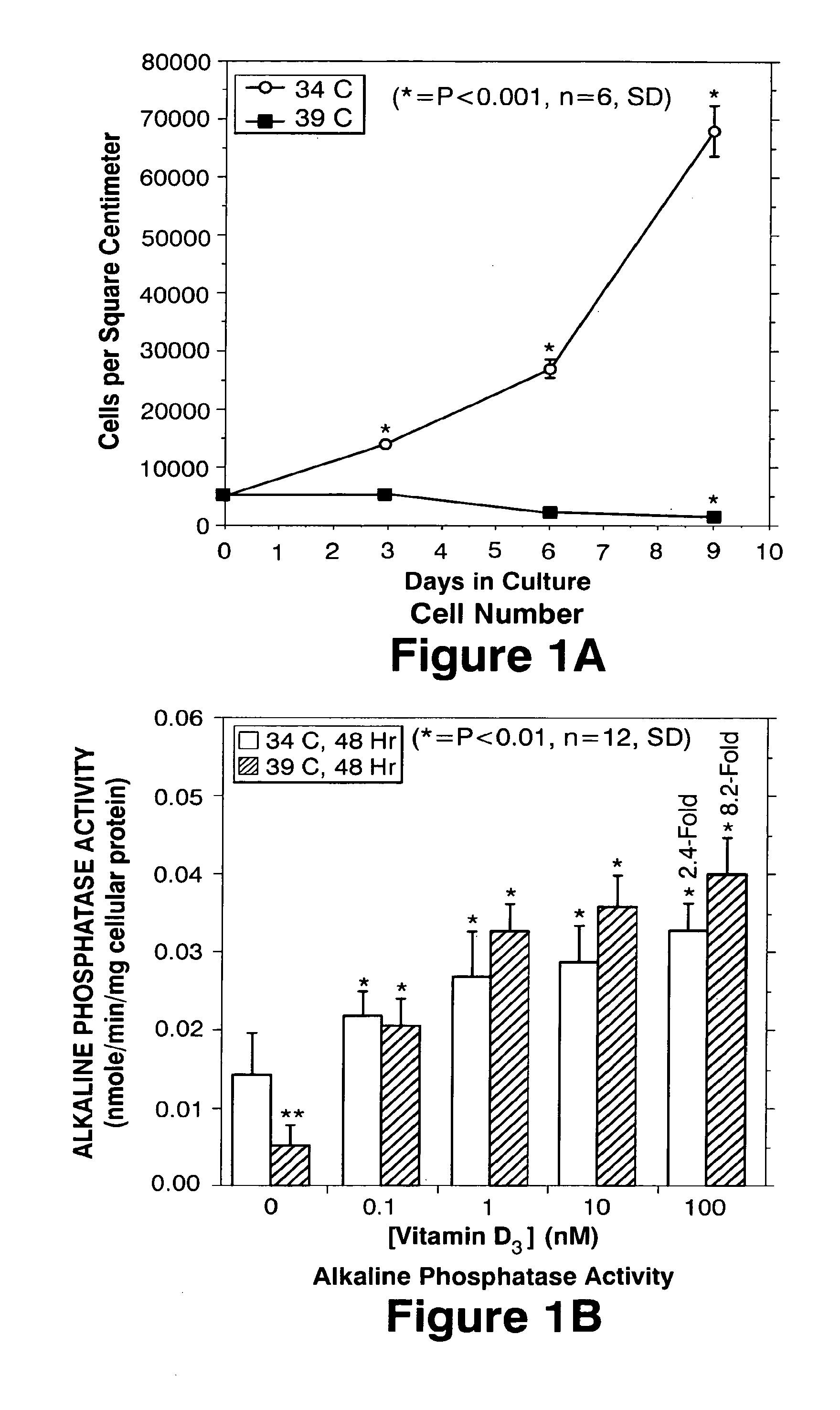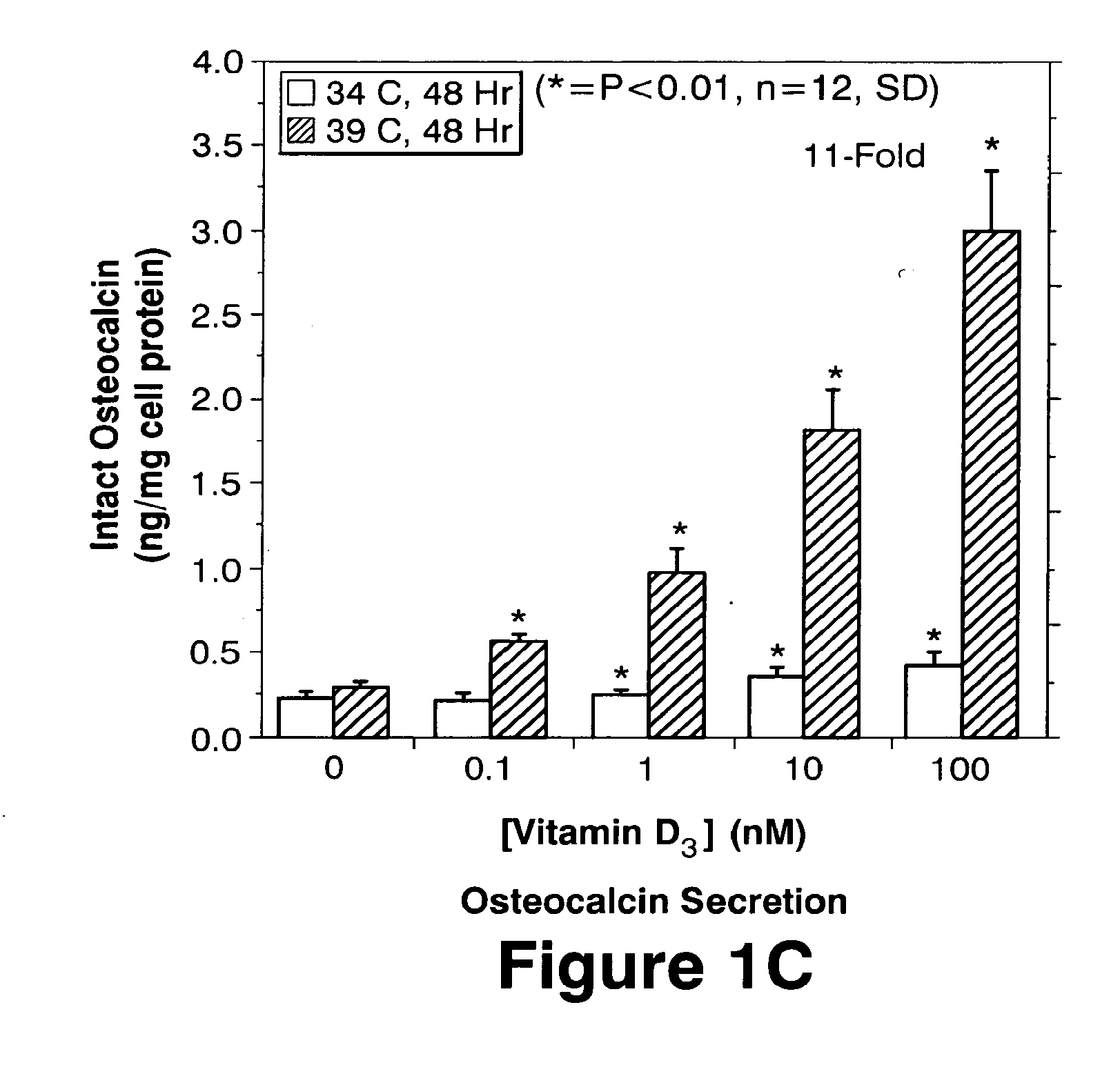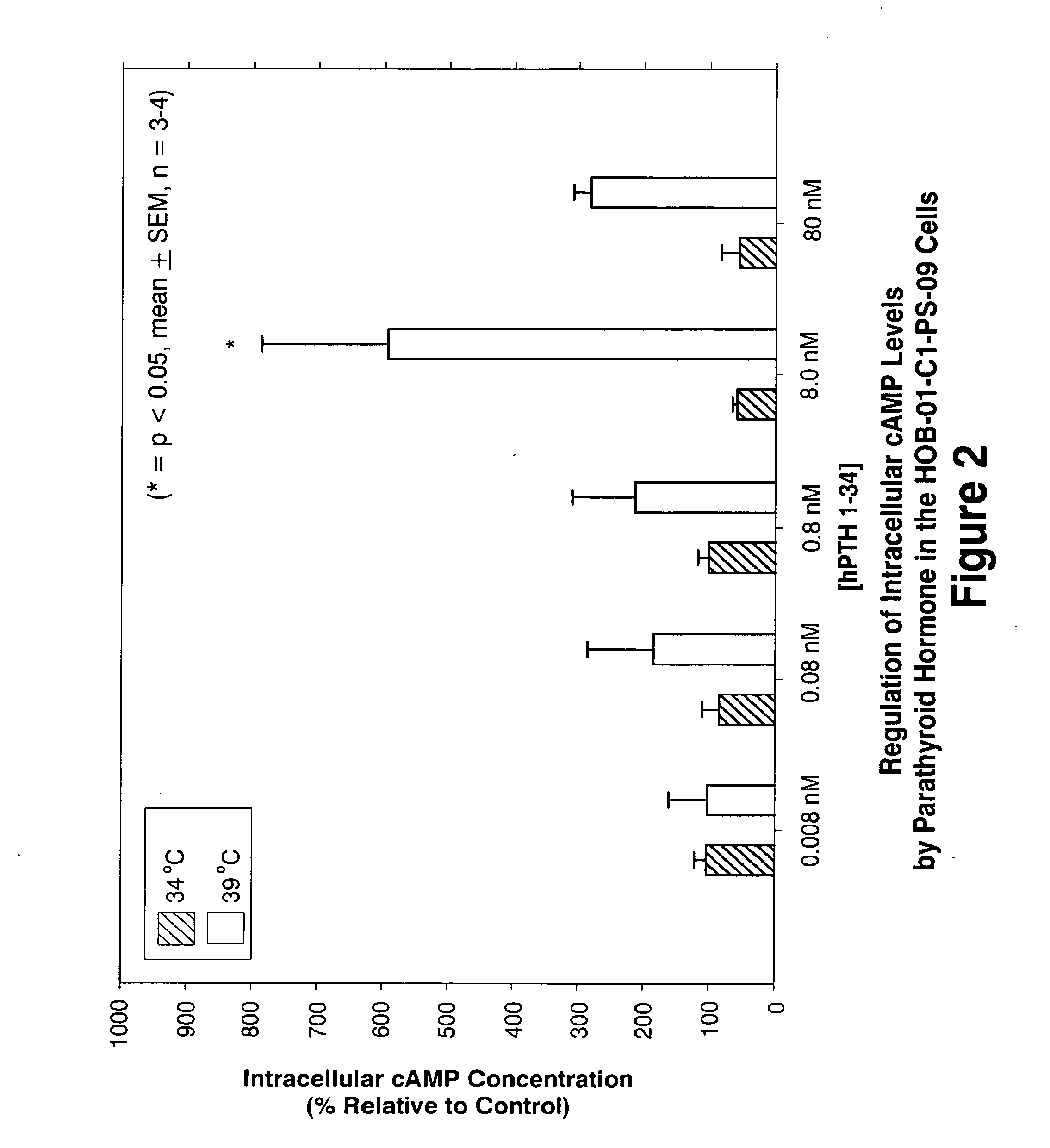Pharmaceutical compositions and methods using secreted frizzled related protein
a technology of related protein and composition, which is applied in the direction of drug composition, peptide/protein ingredient, antibody medical ingredients, etc., can solve the problems of unclear delineation of their functions, and achieve the effects of facilitating bone formation or repair, increasing the amount of sfrp expression and activity, and inhibiting sfrp expression
- Summary
- Abstract
- Description
- Claims
- Application Information
AI Technical Summary
Problems solved by technology
Method used
Image
Examples
example 1
Generation and Analysis of hOB Cells
[0144]The hOB-01-C1 cells are a conditionally-transformed cell line derived from adult human bone that faithfully exhibit a pre-osteocytic phenotype. These cells were transformed with a temperature-sensitive large T-antigen (tsA 209) and proliferate at the permissive temperature of 34° C. when the T-antigen mutant is active; however, the cells stop dividing at the non-permissive temperature (> or =37° C.) when the T-antigen mutant is inactive. Although the hOB-01-C1 cells are the first osteocyte cell line to be established and are suitable for exploratory research, they have some disadvantages for drug discovery. Like other SV-40 large T-antigen transformed human cell lines, the hOB-01-C1 cells undergo crisis and senesce after 15-20 passages in culture. Thus, although often referred to as “immortal”, such cell lines are actually only “extended-life”. The hOB-01-C1 cells also proliferate slowly in culture at 34° C. with a doubling time of about onc...
example 2
Isolation of sFRP
[0153]The hOB sFRP gene fragment was identified using RADE (rapid analysis of differential expression) technology as described by Shiue 1997 Drug Develop. Res. 41: 142-159, the whole of which is incorporated herein. Three hOB cell lines (hOB-03-C5, hOB-03-CE6 and hOB-01-C1), representing three distinct stages of differentiation (proliferative, mature and preosteocytic, respectively) were used to isolate and identify sFRP. The hOB cell lines were established and cultured as previously described (Bodine et al., J. Bone Miner. Res. 1996, 11:806-819; Bodine et al., Endocrinology 1996, 137:4592-4604; Bodine et al., J. Cell. Biochem. 1997, 65:368-387). These cell lines were immortalized with a temperature-sensitive simian virus (SV) 40 large T-antigen and exhibited a transformed phenotype at the permissive temperature (34° C.) when the T-antigen mutant was active. However, in contrast to osteosarcoma cells (Stein and Lian, Endocrine Rev. 1993, 14:424-442), the hOB cell li...
example 3
Characterization of hOB sFRP
[0154]The results from RADE demonstrated that the hOB sFRP gene fragment was strongly up-regulated by PGE2 treatment in the proliferative-stage (hOB-03-C5) and maturation-stage (hOB-03-CE6) hOB cell lines, but down-regulated by TGF-β1 treatment in the pre-osteocytic (hOB-01-C1) cell line. Moreover, basal expression of this gene was dramatically increased in the pre-osteocytic cells (hOB-01-C1), suggesting that hOB sFRP gene expression is linked to the osteoblast differentiation process.
PUM
| Property | Measurement | Unit |
|---|---|---|
| bone density | aaaaa | aaaaa |
| degenerative bone disorder | aaaaa | aaaaa |
| osteodegeneration disorder | aaaaa | aaaaa |
Abstract
Description
Claims
Application Information
 Login to View More
Login to View More - R&D
- Intellectual Property
- Life Sciences
- Materials
- Tech Scout
- Unparalleled Data Quality
- Higher Quality Content
- 60% Fewer Hallucinations
Browse by: Latest US Patents, China's latest patents, Technical Efficacy Thesaurus, Application Domain, Technology Topic, Popular Technical Reports.
© 2025 PatSnap. All rights reserved.Legal|Privacy policy|Modern Slavery Act Transparency Statement|Sitemap|About US| Contact US: help@patsnap.com



